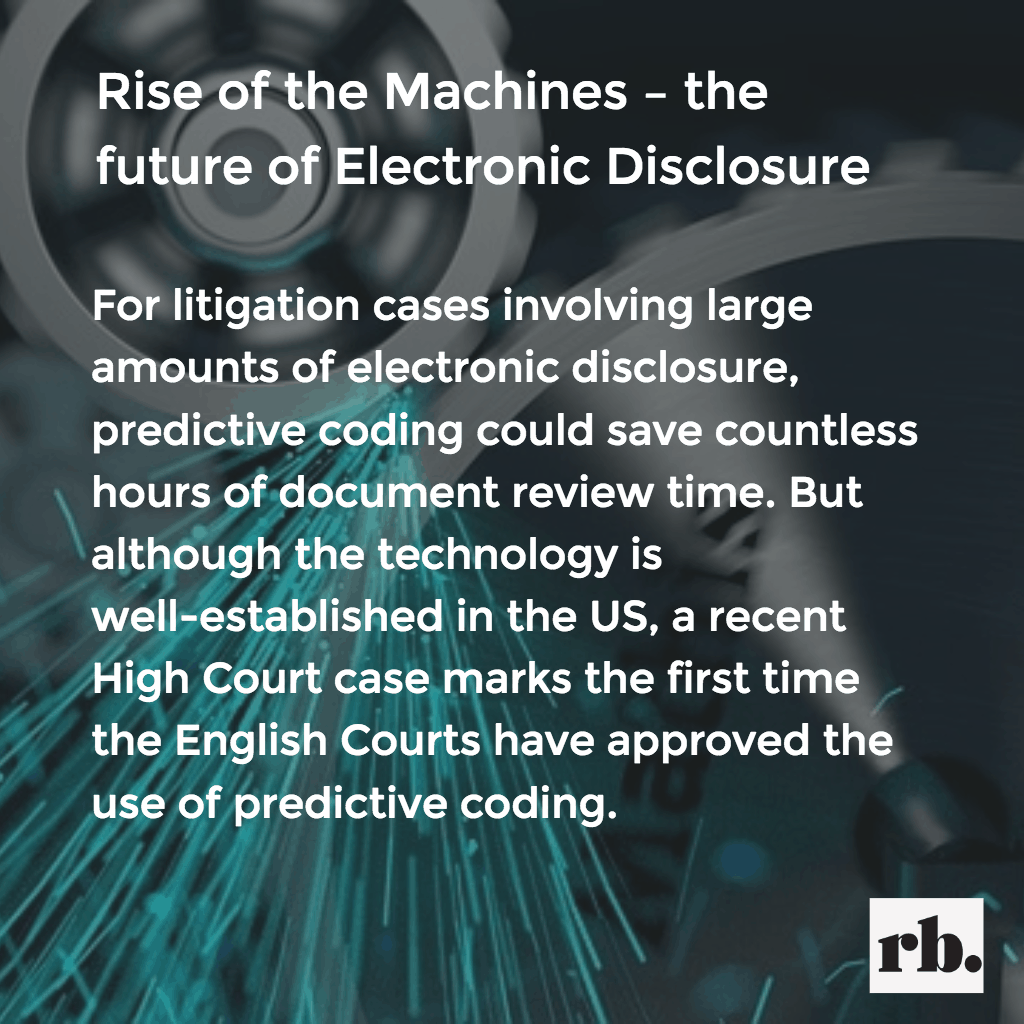ARCHIVED CONTENT
You are viewing ARCHIVED CONTENT released online between 1 April 2010 and 24 August 2018 or content that has been selectively archived and is no longer active. Content in this archive is NOT UPDATED, and links may not function.Extract of article by Michael Axe
Electronic disclosure (or e-disclosure) is the umbrella term used to describe the disclosure of electronically stored information (ESI). Whereas a decade or two ago, most or even all of a company’s documents that needed to be disclosed in Court proceedings would be paper documents, today the vast majority of a business’ documents are held electronically. And whereas when the documents were paper-based there may, in most cases, have been a few hundred documents to review to sort the relevant from the irrelevant, with ESI there are often several million documents that need to be reviewed.
Early attempts to use specialist software to assist with the “human” part of the ESI review process centred around “de-duplication” technology (which, as the name suggests, would remove duplicate copies of emails, Word documents and so forth), and around “keyword searches” (where the software would search for documents containing one or more keywords suggested by those knowledgeable in the facts of the case). The keyword searches were helpful in reducing the number of potentially relevant documents that then needed to be manually reviewed by a human, but the searches were not always particularly sophisticated. As a result, many irrelevant documents would still be included in those for manual review.
Read the complete article at Rise of the Machines – the future of Electronic Disclosure






















